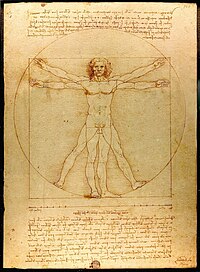| Part of a series on |
| Humanism |
|---|
 |
| Philosophy portal |
The following outline is provided as an overview of and topical guide to humanism:
Humanism group of philosophies and ethical perspectives which emphasize the value and agency of human beings, individually and collectively, and generally prefers individual thought and evidence (rationalism, empiricism), over established doctrine or faith (fideism). Two common forms of humanism are religious humanism and secular humanism.
Humanism, term freely applied to a variety of beliefs, methods, and philosophies that place central emphasis on the human realm. Most frequently, however, the term is used with reference to a system of education and mode of inquiry that developed in northern Italy during the 13th and 14th centuries and later spread through continental Europe and England. Alternately known as Renaissance humanism, this program was so broadly and profoundly influential that it is one of the chief reasons why the Renaissance is viewed as a distinct historical period. Indeed, though the word Renaissance is of more recent coinage, the fundamental idea of that period as one of renewal and reawakening is humanistic in origin. But humanism sought its own philosophical bases in far earlier times and, moreover, continued to exert some of its power long after the end of the Renaissance.[1]
Humanism can be described as all of the following:
|
Main article: Humanism § History |

Other humanist terms include:
For more organizations see Category:Humanist associations
People who have made a major impact on the development or advancement of humanism: